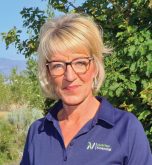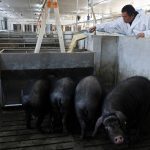This past winter, I attended two conferences in Alberta related to farm business management. One was the annual conference of Farm Management Canada (FMC) held in the beautiful Rocky Mountains at Canmore, and the other was the annual Alberta Farm Advisor Update presented by the Canadian Association of Farm Advisors (CAFA), which was held in Red Deer.
I attend conferences like this as part of my legal obligations of being a professional agrologist (PAg), whereby I have to perform 35 hours of continuing professional development each year at my own expense. I also find these meetings are a great way to network with other advisors, share information and gain new insights. I urge all farmers to take the time, effort and expense to include continuing education as part of their annual personal development plans by reading articles, attending conferences and doing online study.
At both of these conferences there were bank personnel speaking about achieving and maintaining good relationships with lenders. The following are some of their recommendations along with some of my own that I have gleaned in my 19 years of doing farm business consulting.
Read Also

Managing through market or individual stock declines
Even the best of public-traded companies can periodically experience significant drawdowns, and a successful investor should be prepared to react — or not react — accordingly, Herman VanGenderen writes.
Before you consider a new loan, I recommend that you discuss the proposed purchase thoroughly with your family and team members. Are the other family members on side and does it appear you will be able to repay the new loan without undue stress on your cash flow?
A well-prepared business plan, which includes all of the information provided below, should first give you, your family and/or team the assurance they need to progress with the new purchase (or not). If they are not in agreement at this vital first stage, then it’s probably best to delay the purchase. The business plan, if favourable, will also provide your lenders with the information they need to assess your proposal.
The five C’s
The five C’s of small business lending is a simple, yet useful, evaluation tool for a loan. In a future article, I’ll examine a more comprehensive evaluation method.
1. Character: Questions to consider include the following: What’s the history of your farm? What’s your experience and education? Have you met your financial commitments in the past, which is mainly shown by your credit score?
2. Capacity: Does it look like you will be able to repay the loan (on top of existing loans, if any) with undue stress? This is mainly shown by your debt service ratio or EBITDA (earnings before interest, taxes, depreciation and amortization). Also, a favourable business plan will provide this information plus add impetus to your application.
3. Capital: How much of your own money are you prepared to put “up front” for the loan (the down payment, that is), which could be in the form of equity in other assets?
4. Collateral: What assets do you have to back the loan in case of default? This is usually the land or machinery you are purchasing and other assets you own that are “free and clear.”
5. Conditions: These are the interest rate, repayment term, payment amounts and frequency and other conditions that the lender usually stipulates. Remember these conditions may be negotiable to some extent depending on your overall financial situation.
Partnerships and communications
Lenders want to be, and will be, partners in your business, so they want to know all about your farm, its history, who is involved and your successes and challenges (everyone has some).
A current and accurate financial statement is absolutely necessary for the lender. If your farm is incorporated, a partnership or a joint venture, a financial statement, prepared by an accountant, should have at a minimum a balance sheet, an accrued income statement and notes explaining the numbers therein. This financial statement should be done within three months of your fiscal year end so the information is current.
If you are a sole proprietor, a balance sheet accompanied by your tax returns for the last couple of years may be adequate for the lender if your accountant is not preparing a financial statement. Also, a personal net worth statement listing all of your assets and liabilities at current market values will be helpful. Whatever your legal structure is, a three- to five-year history of income and expenses will give the lender a good picture of the profitability of your farm. In all of your dealings with lenders, be prepared to respond quickly and openly.
Your current financial situation (as per your most recent financial statement) will be the starting point for your new purchase justification. Then describe how your purchase will enhance your operation and how you intend to cash flow the loan (i.e. capacity). Can you achieve a debt service ratio (EBITDA) of at least 1.2 to 1 and preferably 1.5:1 or better in combination with all of your other loans?
The other factors that lenders want to know is liquidity (current ratio, working capital and debt structure), solvency (debt to equity, equity ratio) and financial ratios (debt servicing, return on investment and equity). Other items to include in your business plan are the management (people), materials, labour and machinery, marketing, risk management, SWOT analysis (strengths, weaknesses, opportunities and threats) and an industry outlook.
READ more: Investment advice with Grainews columnist Herman VanGenderen
As you can see, lenders want to know a lot of information, which is really no more than you should ask yourself, your family and/or team before you make a new purchase.
Distress situations
The problems with lenders usually start when there is some sort of financial distress. We all tend to hide our problems from our families and lenders. That is a huge mistake. At the first indication there is likely to be a delay in making your loan payments, contact your lender(s) and explain what’s about to or has gone wrong.
For example, if the upcoming crop looks like it’s going to be smaller than anticipated and you will not be able to make your debt service payments, then early communication with your lenders is vital to maintaining a good relationship. It’s better to communicate with the lender during the summer rather than waiting until the fall or winter when the input invoices are finally due.
Distress situations usually require a new business plan that outlines the problem and ways and means to address the situation. Some alternatives could be to sell assets such as surplus machinery, off-farm employment and/or loan consolidation. In some of these situations that I’ve been involved with, the farmer has had to sell some land to reduce the debt load to a manageable level. In most of these cases, the farmer was able to rent the land so the productive value was not lost.
I’ve also worked with some farmers where the relationship with the existing lender(s) has deteriorated to such an extent that the affiliation had to be severed and we had to find a new lender. In those situations, I prepared a new business plan that incorporated some of the alternatives mentioned above and was then circulated to other lenders in the industry. Fortunately, in all of those cases we were able to find a new lender, although the terms were somewhat harsh and the conditions were strict.
Remember that “cash is king” in the financial world. Managing your cash flow so you have money available to pay your routine bills and make loan payments when they are due will go a long way to help you achieve financial harmony with your lenders.
















